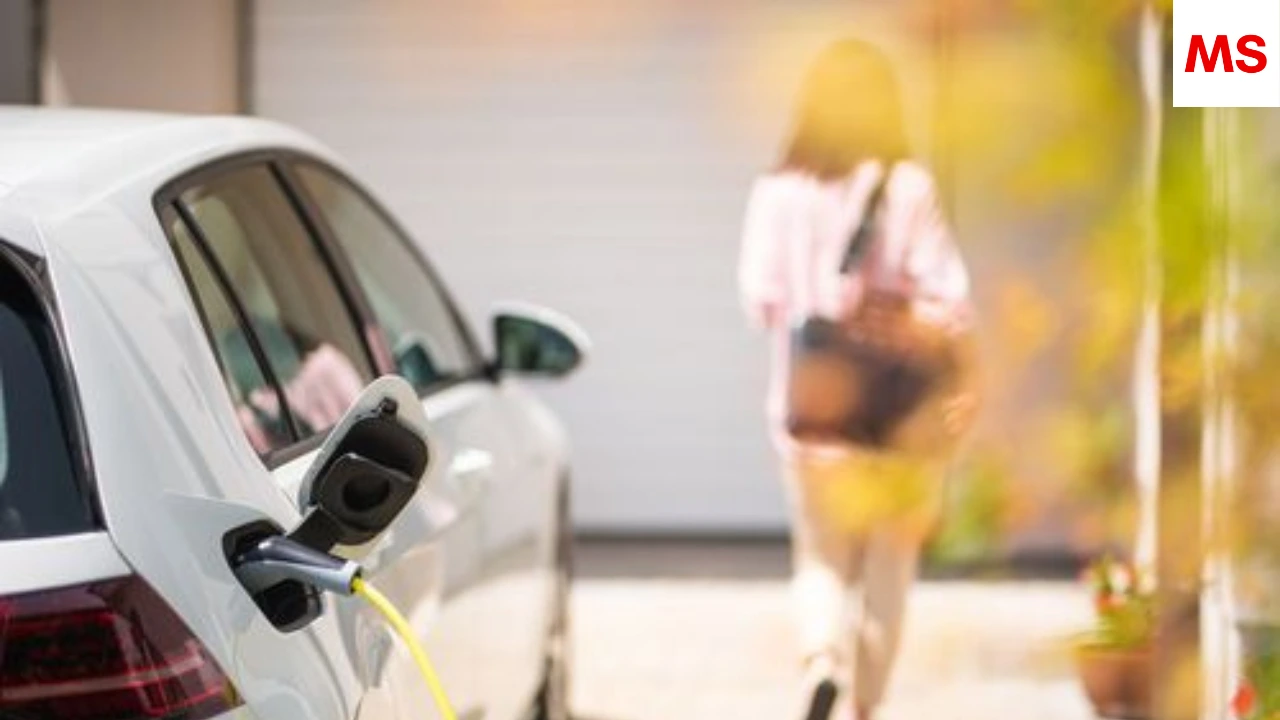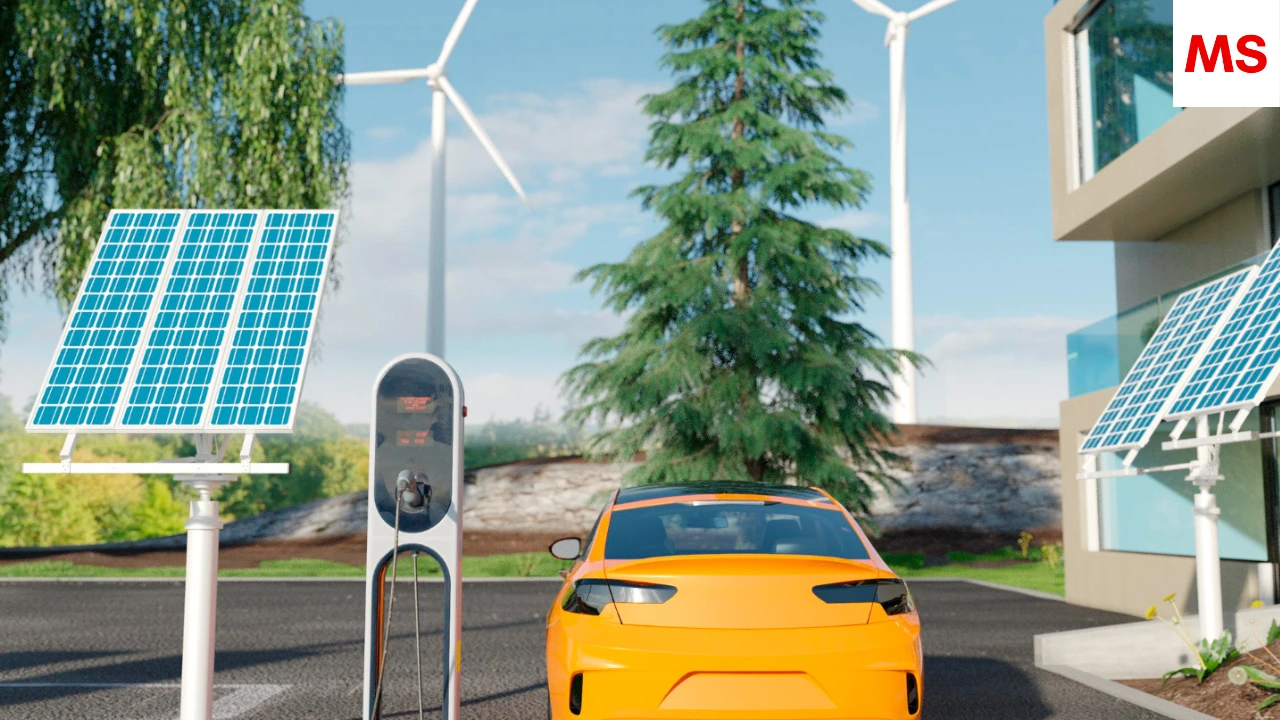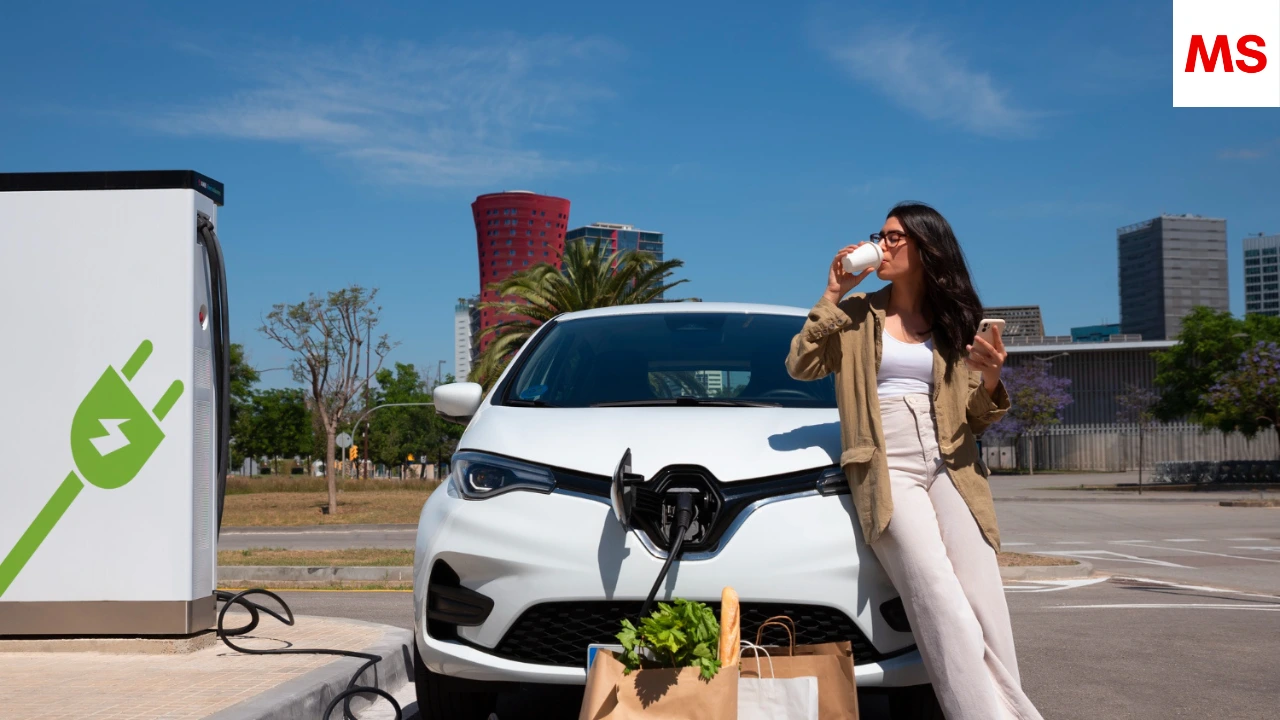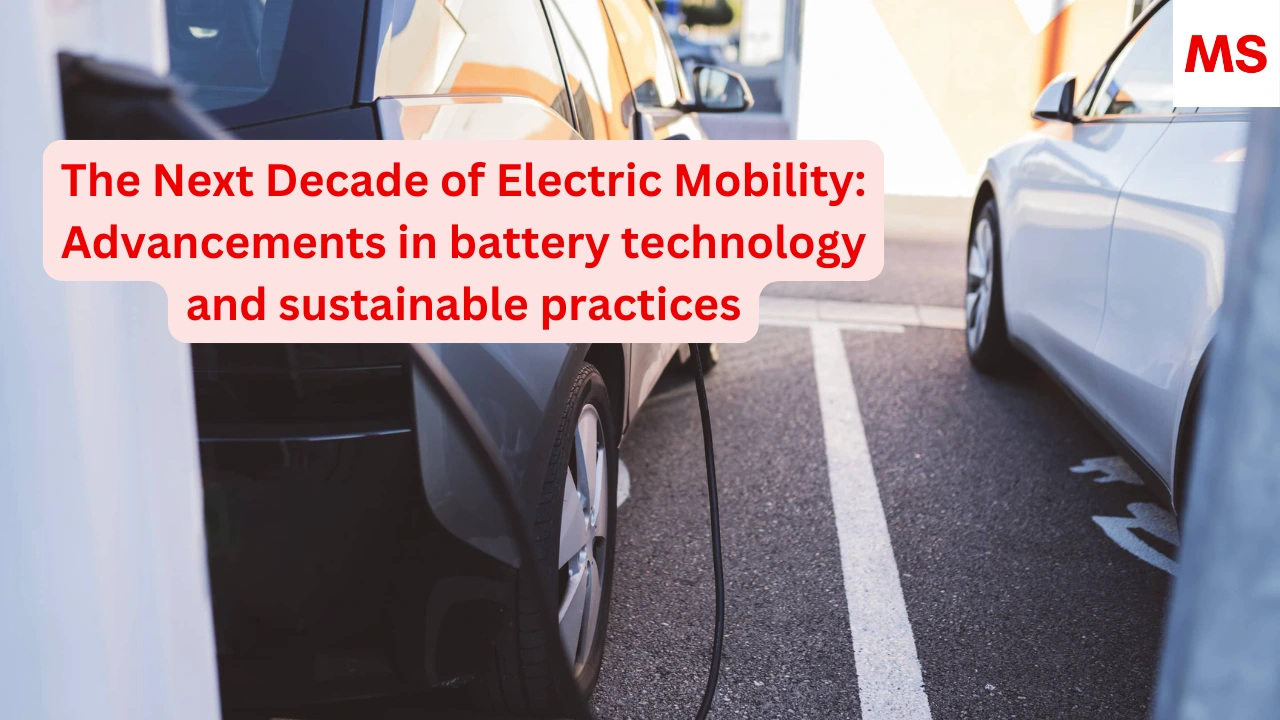Electric Mobility: The other side of this is the fast-changing world. These days, electric vehicles (EVs) have never been so desirable. In today’s era, especially with the conference of climate change hovering over our minds, we are searching for cleaner modes to move. First, it all leads back to EVs. But what sets them apart? The solution to this problem is the battery technology.

As you know, battery tech is the cornerstone of any EV. EVs wouldn’t survive without it. And as more consumers shift to EVs, the need for better batteries increases. This Article Investigates the Future Of EVs and How New Battery Tech Is Controlling That Future We’ll also respond to a few common questions surrounding EVs and their batteries.
Significance of EV Battery Tech
Electric vehicle batteries for electric Mobility. Electric vehicles (EVs) on the other hand require a battery of some kind to move, rather than gasoline like traditional cars. It depends on the battery type because they influence EVs’ range, speed, and charging time.
Battery technology used to be very old-fashioned. The earlier electric vehicles had short range and for full charge they took time. But things have changed. Batteries today are more powerful, last longer, and charge faster. All of this is due to the refinement received by ongoing research and development.

Groundbreaking Battery Innovations
- Lithium-Ion Batteries: The vast majority of EVs in circulation today use lithium-ion batteries. They are rechargeable, lightweight, and have a high energy density. Of course, scientists make these tools even more perfect. The latest lithium-ion batteries are more efficient and store much more energy. In other words, EVs could very well have a better driving range.
- SOLID-STATE BATTERIES Solid-state batteries are what many people think of as the next generation of technology. They do not use a liquid electrolyte like conventional batteries, but solid substances replace them. This makes them more secure and less solid. Solid-state batteries can hold more energy and be charged much faster. They are also less prone to overheating or starting on fire. A lot of experts say this design is the future way to go for EVs.
- Fast Charging Technology: Charging time is one of the challenges for EVs. Haas said nobody wants to sit around for hours waiting while their vehicle reboots itself. Fortunately, with new fast-charging technology, this is starting to change. Therefore, EVs can be charged with fast chargers in minutes rather than hours. This renders them a whole lot more user-friendly.
- However, the same is not true of battery recycling: more EVs means more retired batteries. The batteries must be recycled due to sustainability. Methods by which to recycle batteries from the past in new ways using their old parts are now being prototyped. Waste of materials can be minimized thereby millions are saved during production on creating new batteries.
- Everything You Need to Know About Second-Life Batteries: When a battery dies, it doesn’t mean that its life is over. However, second-life batteries can be repurposed for other applications, such as energy storage from solar panels. At the same time lasting longer and NOT dispose of a battery yet!
How Battery Technology Affects Sustainability
So naturally electric Mobility would be seen as a solution to curb greenhouse gas emissions. However, the environmental impact of producing batteries and how they are discarded also comes into play. This is why the sustainability of battery technology has become one of many important aspects.
- Lower Carbon Footprint: A huge amount of energy is used to make batteries. Some less damaging ways to produce batteries are in the works, however. This covers anything from using renewable energy sources in manufacturing to technologies that can improve battery efficiency.
- Environmentally Friendly Materials: Batteries are made with materials, namely lithium and cobalt produced by mining in unsustainable manners. Scientists are here to make more eco-friendly batteries. They are also trying to find ways of reducing the volume required.
- Batteries: This is a major category of wastage and these contain harmful chemicals, and heavy metals that can be easily recycled. But we should also be promoting ways to upcycle them. It not only reduces waste but also helps lower the cost of EVs.
- Waste Reduction: Long-lasting batteries mean fewer replacements. Therefore it also reduces the waste that we make with our old batteries.

Ask questions when they need clarification. Find more of their Frequently Asked Questions (FAQs) here.
Q1: What is the lifespan of electric car battery?
A1: The life of an EV battery is influenced by some factors. The brand weighs in heavily, as do the regularity and manner of charging or usage and which kind of battery. Under normal usage circumstances, an EV battery can live up to 8-15 years before a replacement is necessary. The battery of the new models lasts up to 10 weeks or more, in some cases. Batteries are usually covered by automotive warranties, in case that helps!
Q2: What is the driving range of an electric vehicle?
A2: Certain EVs are capable of driving upwards of 300 miles without needing to be plugged in. Some may offer a range as short as 150-200 miles, Battery technology keeps getting better and better, so more recent EVs are promising longer ranges. You also need to think about things like how they drive and what the weather is doing, as these seasonal conditions can reduce power reserves rapidly.
Q3: What happens to electric vehicle batteries after they have reached the end of their service life?
A3: Certainly the end of usable life for powering a vehicle is NOT exilement. The cells can be recycled or upcycled into different battery applications. If anyone did any recycling to get some of the valuable materials like lithium and cobalt they would re-use them in new batteries. The “repurposing,” or giving the battery a sort of second life, could see them put to use elsewhere like in an energy storage capacity.
Q4: Are electric vehicle batteries secure?
A4: Yes, in general, electric vehicle batteries are safe. They are rigorously tested for safety. However, as with any technology, there are dangers. Batteries can overheat if they are damaged, or not used or taken care of properly. This is not surprising that manufacturers try to do their best for their battery’s security. One innovation: solid-state batteries, which don’t tend to spontaneously combust as frequently.
Q5: What is the time required to charge an electric vehicle?
A5: How long does it take to charge an EV — This is dependent on the charging level. A Level 1 charger, a common home charging option, can take between 8 to 12 hours for a full charge. Usually, a public level 2 charger, is capable of charging within the convenient timeframe between about four to six hours. Level 3 fast chargers, meanwhile, can charge an EV in as little as half an hour to one hour. Charging times are reducing as battery and charging technology improves.
Q6: Electric vehicles vs Gasoline cars cost wise?
A6: Electric models as a general rule are more expensive up front. But then again, they are less expensive to run for the long term. Fuel costs use electricity and by definition are cheaper than gasoline. They also cost less to replace, as they are more durable, and fewer components mean there is simply a lower upfront price. This can pay for the higher purchase price of hybrid cars through fuel and maintenance savings over time.
Q7: Can I charge my electric vehicle at home?
Most EV owners charge their cars at home. An ordinary household outlet allows you to charge your car at a low speed, and charging using a more powerful Level 2 charger is possible at high speeds. Home charging is best for your daily routine and saves you money compared to other options. Plus, some companies offer special rates for EV owners – yet another opportunity to save money.
Q8: What is the negative impact of producing EV batteries?
A8: In terms of resource extraction and energy use, producing EV batteries does hurt the environment. However, similar to other processes, special measures can be taken to reduce the negative consequences. In particular, it is possible to switch to other, more environmentally friendly materials and consume less energy. Nevertheless, at first glance, the overall environmental impact of the production process is significant.
Q9: Will electric vehicles replace gasoline ones in the future?
A9Ultimately, electric vehicles may become the most popular form of transport. A gradual decrease in the number of petroleum vehicles is likely over time. However, The move will take quite a long time, as electric vehicles have several problems, from the lack of charging infrastructure to batteries. However, much will change as technology and technology evolve.
Q10: Can I count on any incentives if I buy an EV?
A10: Yes, buying EVs is quite popular, and many governments offer their citizens discounts, cuts in tax deductions, and various rewards in case of purchase. In this case, reward implies a discount on vehicle registration or the cost of acquisition itself. Moreover, in some regions, there is a chance to receive state support for the installation of home charging points and charger sources.
Conclusion
But clearly, the future for EVs is not nearly so bleak. However, with the new age batteries taking over we see a bright future for EVs which are now not just efficient but also cost effective and environment friendly. In the coming years, we can certainly expect to see more innovations as a greater number of people make the switch to electric. There is so much more to EVs, with batteries even lasting longer or having a faster rate of charging.
And of course, battery technology will remain a key driver in defining that future. EVs will be leading this evolving world of greener transport. There still may be debate over the long-term prospects of electric cars and their batteries, but in fact, it’s likely that for a generation or more, they represent as close to an “end game” storage solution for vehicle powertrains.
I’m Ankz Kumar, the writer of Meraseason News. Here, I write content for tech, business, finance, automobiles, and education. My goal is to provide valuable, easy-to-understand content to readers so they stay informed and make smarter decisions.


1 thought on “The Next Decade of Electric Mobility: Advancements in battery technology and sustainable practices”